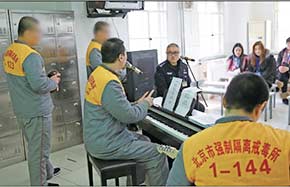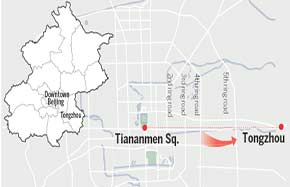Donation to US institute causes mixed reaction
The ratio of research and development expenditure to GDP is frequently used as an indicator for a country's economic power.
That is why some Chinese scientists said they were astonished when a Chinese businessman donated a large sum of money to support fundamental research in the United States, a country with a per capita GDP seven times that of China.
On Wednesday, Chen Tianqiao, once ranked the richest man in China, together with his wife, Luo Qianqian, donated $115 million to set up a foundation at the California Institute of Technology in the US in efforts to crack the fundamental principles that underlie brain function.
Qiu Zilong, a researcher at the Shanghai Institute for Biological Sciences affiliated to the Chinese Academy of Sciences, told the Shanghai-based China Business News: "At first, I was pleased that Chinese entrepreneurs are showing an interest in brain science and fundamental research. But then I felt sorry (for the Chinese scientists)."
"$115 million may not be much money for the US, but it is an enormous figure for Chinese researchers," Qiu said.
Chen Yelin, a researcher at the Shanghai Institute of Organic Chemistry affiliated to the Chinese Academy of Sciences, said: "Neuroscience is already such a huge research field in US that an additional $115 million won't bring significant changes, despite significant media attention. However, China is experiencing a fast growth period, where such investment would likely bring changes from a long-term perspective."
"It is a better choice to invest in our own scientists rather than investing in US scientists, given the fact that most of us were trained in the US," Chen said.
However, some experts said the investment would benefit humankind as a whole.
Hu Ji, a professor of ShanghaiTech University, said: "The competition for research resources for fundamental research is among individual researchers, not humankind as a whole. For instance, Chinese people have benefited from progress made by US scientists in cancer treatment. So it is a good thing that rich entrepreneurs like Chen invest in scientific research."
However, a researcher from Beijing, who preferred to be anonymous, said: "There are no boundaries for pure theoretical research, so it is understandable that Chen would want to invest his money in institutes or universities considered to be the most elite academically".
China Business News contributed to this story.
chengyingqi@chinadaily.com.cn
(China Daily 12/13/2016 page4)


























